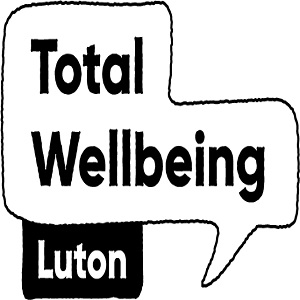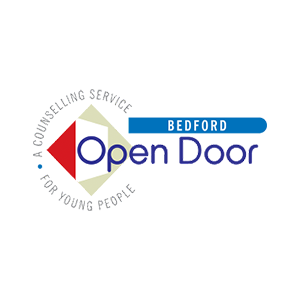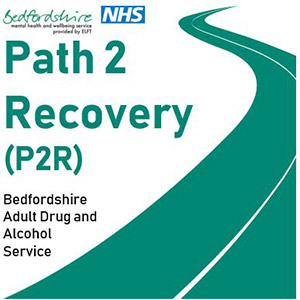Drug & Alcohol Rehab in Bedfordshire

How Does Rehab Work?
Rehabilitation is a process that assists individuals in working towards restoring balance and well-being. Rehab focuses on addressing the patient holistically with individual therapy aimed at resolving addictive behaviours. With the guidance of a professional therapist or counsellor, coping strategies are taught and individuals can access much-needed care.
Strategies focus on relapse prevention and clients can be assigned to an extended inpatient programme or move to an outpatient programme. With inpatient rehab (residential rehab), individuals will reside at the rehab centre for the duration of treatment. Outpatient services are an alternative option in which clients will attend daily/weekly sessions for therapy but will not attend a full-time programme. There are both free and paid outpatient services available within the UK.
What Happens During Residential Rehab?
Rehab is the first step towards recovery and sober living. It can be difficult to work on quitting addictive behaviours on your own but with the support of professional intervention, a substance free life can be achieved. You may fear the unknown; however, a breakdown of the process can help put your mind at rest.
During rehabilitation you are going to receive an individualised assessment performed by a professional. The purpose is to determine the best treatment plan based on your history with addiction and current condition. At this stage, medical staff will look for comorbid disorders such as mental health conditions that exist alongside addiction.
Detox is an important phase of a recovery programme. It involves the safe removal of drugs and/or alcohol from the body. When detox is performed with medical intervention, withdrawal symptoms can be monitored, and its severity managed. This can significantly improve the chances of success and minimise relapse.
While attending rehab you will receive therapy. Treatment can be delivered on an inpatient or outpatient basis. Therapy ranges from individual counselling including Cognitive Behavioural Therapy, skill building and group therapy.
1. Assessment

For any individual entering rehabilitation, a medical assessment must be provided. It is a normal procedure meant to put your mind at ease as the specialist looks for specific behaviours, previous mental health issues, and general health.
In an inpatient programme, it is expected to have an admissions screening performed by telephone before booking you into treatment.
Phone assessments allow the treatment centre to determine the right programme for your needs. It also provides staff with information to customise support services during detoxification.
Whether you or someone you care about require professional support to overcome substance addiction, it all starts with an individual assessment. Assessments are vital to the success of therapy because it determines the type of therapeutic plan based on the addiction and potential comorbidities (depression or anxiety).
2. Detox

If you are dependent on drugs and/or alcohol or you have a substance in your body, you must undergo detox before you can proceed with a recovery programme. Detox is performed in a residential rehab or a medical facility. During detoxification, the drug is gradually cleared from the body which usually results in withdrawal symptoms.
It is recommended to have a supported medical detox because an experienced medical team are readily available to help you through the withdrawal process. As the substance is removed, you may start to develop withdrawal symptoms. Without professional aid, there is a higher risk of relapsing. Detoxification is followed by a fully tailored therapeutic programme. You can attend inpatient or outpatient therapy that is lead by trained addiction counsellors and a support team.
3. Therapy

Once a medical assessment and detox are finalised, individuals will enter into a rehabilitation programme involving therapy. Therapeutic intervention will consist of inpatient or outpatient programmes which depend on the your budget and life commitments. Some of the most common therapies you can expect at a treatment facility include traditional one-on-one therapy, trauma counselling and skill development, and group therapy sessions.
Step by Step Process for Residential Rehab
To understand your medical and mental health history.
Arrange a suitable date to begin your journey to recovery.
Begin the managed withdrawal process from substances including alcohol.
To understand the root cause of addiction and how to overcome it.
Aftercare is provided to help manage the risk of relapse.
To help heal the wounds that addictive behaviour has caused others.
Find your Nearest Rehab Centre in Bedfordshire
The nearest rehab centre is Liberty House Clinic.
Address: 220 Old Bedford Rd, Luton LU2 7HP
Call 0333 4444 432 to discuss your alcohol or drug rehab requirements and any other questions you may have about the process of residential rehab.
Outpatient Addiction Services in Bedfordshire
Inpatient or outpatient programmes for dependence can be determined by your budget requirement & life circumstances. Nevertheless, it is an individual process that requires full commitment and awareness to succeed. To help you understand these different options, we look at outpatient addiction treatment services compared with residential rehab.
Outpatient services are not a round-the-clock or even a 12-hour programme, but rather involve weekly sessions with a therapist or group. Individuals will live at home and continue to work or tend to family time while receiving the necessary counselling.
Outpatient care includes individual counselling with a therapist. You are required to travel to the therapist which involves hour long treatment sessions. Apart from private therapy, there are also free services from charities and government backed organisations that address substance dependencies.
NHS & Free Addiction Services in Bedfordshire

Hightown Community Sports & Arts Centre Concorde Street Luton Bedfordshire LU2 0JD
WebsiteThe Benefits of Outpatient Services
Outpatient care is personalised to individual needs to provide the best possible support and chances of recovery. – Owing to the flexible arranges provided by outpatient therapy, it can facilitate a wide range of individuals and financial situations. Therapy sessions are typically attended once/twice weekly under the guidance of a certified therapist. It is more cost effective compared with an inpatient programme.
The Challenges of Outpatient Services
While one stay at home and takes part in outpatient programmes, they may be at higher risk of relapse due to being exposed to triggers and easy access to drugs or alcohol.

How Much Does Rehab Services Cost in Bedfordshire?
Alcohol & drug rehab within a residential centre typically costs around £1500 – £4000 per week. Residential rehab is one of the more expensive forms of treatment for drug and alcohol dependency. For free and cost-effective services, charities and government funded services offer programmes for all individuals seeking recovery.
The NHS and charities such as Turning Point will require a self-referral to be considered for treatment. You can also find many other affordable services (such as private counselling) or free therapies and community supported services for those with drug and alcohol addiction. These groups include AA or Alcoholics Anonymous, Narcotics Anonymous, and Cocaine Anonymous.
Support Groups in Bedfordshire

AA Meeting - Bedford Hybrid
St Peter De Merton Church, De Parys Ave, Bedford, MK40 2TX

AA Meeting - Bedford Hybrid
St Peter De Merton Church, De Parys Ave, Bedford, MK40 2TX

Bedford Lunchtime
Quaker Meeting House, 5 Lansdowne Rd MK40 2BY
The Pros and Cons of Seeking Treatment in Your Local Area
Pros
1. You are familiar with the area which may provide a layer of comfort/safety.
2. Family or friends can easily travel to visit or are close by.
3. You may save on the costs of travelling long distances for addiction treatment, or free addiction services may only be offered in your area of residency.
Cons
1. A local environment means access to drug dealers or other triggers. This is more of a concern if you decide upon outpatient programmes.
2. Not considering locations outside your area could mean missed opportunity for more valuable and rewarding programmes.
3. Addiction treatment services that are nearby don’t always offer the best standard of treatment.
In the event you are unsure about a particular addiction treatment service, you can look to the CQC website for more information including a rating of that service.


